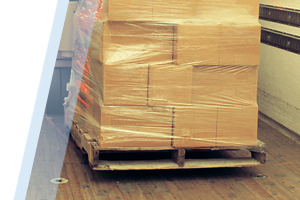
A Freight All Kinds (FAK) agreement you’ve had in place for some time enables multiple items to be shipped and billed under the same freight class, thereby streamlining the transportation process and saving you money.
Or does it?
FAK agreements do generally deliver these benefits, but some decline in value to a point where they may be actually adding rather than saving cost.
There are a number of possible reasons for this fall-off in performance.
- The agreement is out of date. How long has it been since you reviewed your FAK? If the answer is a long time, then there is a danger that the average weighted class has changed. Perhaps it has not kept pace with regulatory changes, or the product mix has changed over the years in line with the evolving business.
- A lack of information. You have no system for capturing and/or tracking actual class information. Key details such as the average density of the items being shipped—one of the four characteristics that determine class—are not known. Or, there may be a system for capturing the FAK class, but the shipper does not know what the actual class is.
- No updates from carriers. The service provider may or may not adjust the agreement as needed if the current terms favor them.
Issues like these can undermine the advantages of an FAK program, and increase your freight bill unnecessarily. Moreover, it’s almost impossible to benchmark less-than-truckload pricing accurately when the FAK-related costs are largely unknown.
The lack of important information such as cargo density complicates the bidding process and makes it more difficult to properly price the product being moved. That can put you at a disadvantage when bidding out freight to non-incumbent carriers that are not familiar with the business.
The “junk-in-junk-out” principle also applies. Transportation management systems usually capture FAK class information from carriers. If these inputs are inaccurate, then the system’s analytics will be off base as well.
Another issue is liability coverage. Carriers will commonly lower their liability to match the FAK class; if the class is low, then the coverage may be significantly lower than what the carrier provides as part of their standard service offering. Again, you might be unaware of this disparity until it is time to make a claim for damage, theft, or some other occurrence.
The longer you fail to address the problem of a flawed FAK class, the worse it is likely to get.
Regulatory regimes are becoming more stringent, particularly for hazardous items and food products. Supply chains are increasingly complex as the types of products being shipped are changing. Also, there is a general move in the freight community toward the use of density as a way to rate shipments. If you do not know these values, then chances are that you are behind the curve.
Crucially, failure to manage FAK agreements effectively means that you have less control over your transportation procurement strategy—a potentially serious drawback in today’s intensely competitive marketplace.
The solution is relatively straightforward: establish a system for capturing, tracking, and storing actual class and FAK information. This can be done in-house, or in collaboration with a service provider.
The important thing is to take action before your FAK agreement becomes a hidden liability.



